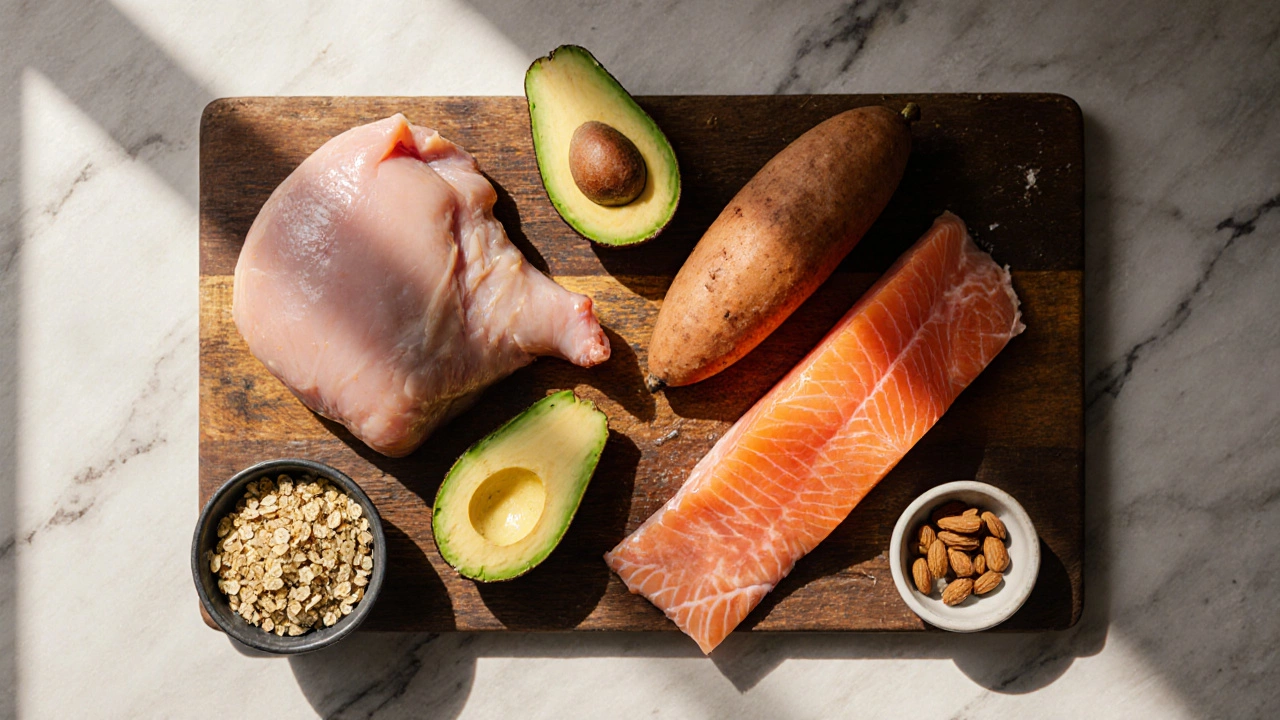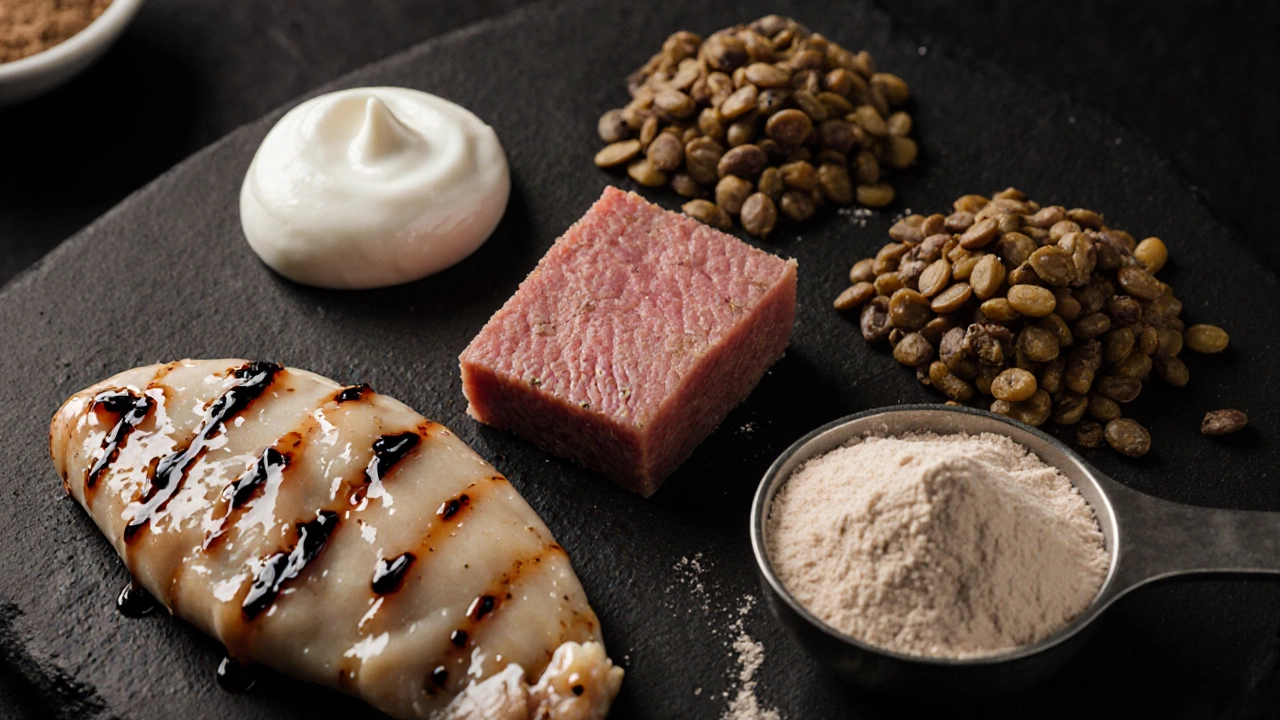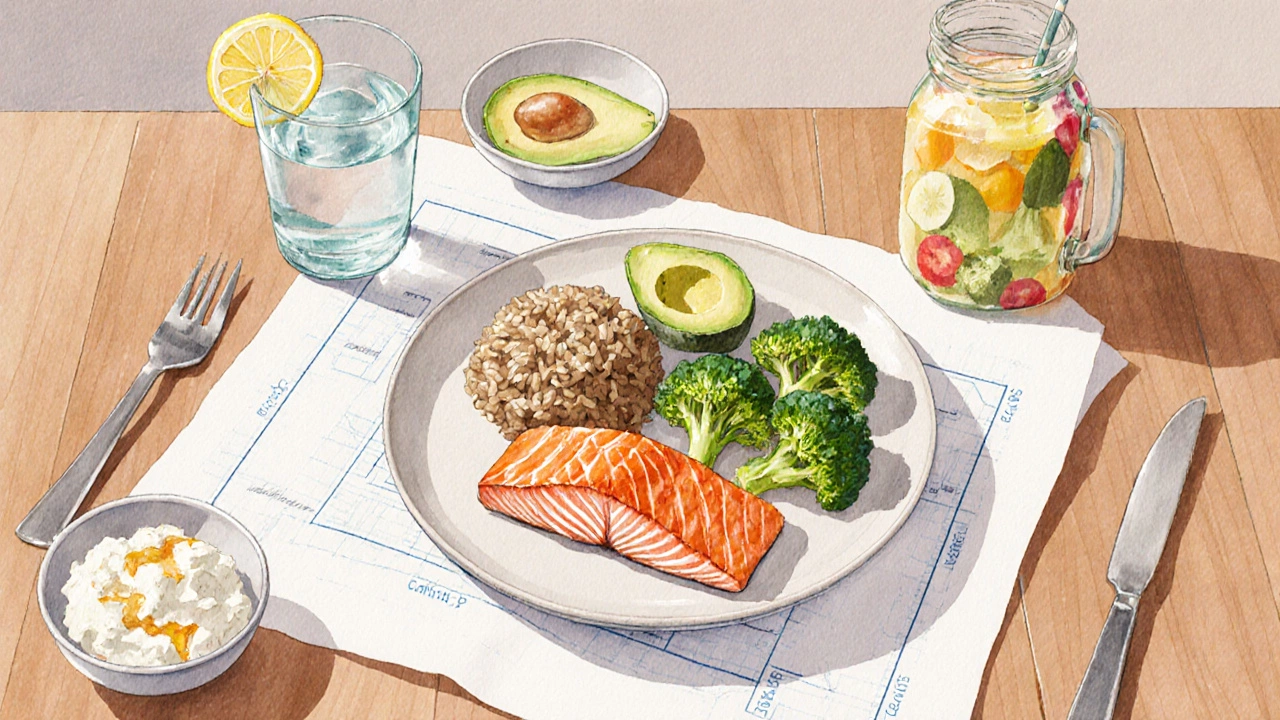
Protein provides amino acids for muscle repair
Carbs replenish glycogen stores for energy
Fats support hormone production for strength gains
When it comes to getting stronger, what you put on your plate matters almost as much as the weights you lift. Strength-Boosting Foods are the nutrients that fuel muscle repair, hormone balance, and energy production, letting you push harder and recover faster.
Every rep you perform is a chemical reaction. Muscles break down protein fibers, nerves fire, and glycogen stores deplete. Your body then rebuilds those fibers using amino acids, restores glycogen, and fine‑tunes hormone levels. Without the right fuel, the repair cycle stalls, and strength gains plateau.
Think of your diet as the building site for a skyscraper. The steel (protein) gives structure, concrete (carbs) fills the gaps, and the wiring (fats, micronutrients) powers the elevators. Missing any component weakens the whole project.
Protein provides the amino acids your muscles need to rebuild. Aim for 1.6‑2.2 g of protein per kilogram of body weight each day, split across meals.
| Food | Protein (g/100 g) | Calories | Cost (AU$/100 g) | Digestibility* |
|---|---|---|---|---|
| Chicken breast | 31 | 165 | 1.1 | 95 % |
| Lean beef | 26 | 170 | 1.4 | 93 % |
| Greek yogurt (plain) | 10 | 59 | 0.8 | 90 % |
| Lentils (cooked) | 9 | 116 | 0.5 | 85 % |
| Whey protein isolate | 90 | 360 | 3.2 | 99 % |
*Digestibility reflects the proportion of protein that’s actually absorbed.
Key takeaways:
Carbs refill glycogen, the fuel stored in muscles. Without sufficient glycogen, you’ll feel weak after a few sets.
Focus on complex carbs with a low‑to‑moderate glycemic index (GI) for sustained release, and sprinkle in a quick‑digesting source around workouts.
Best choices:
Post‑workout, a 3:1 carb‑to‑protein ratio (e.g., 60 g carbs with 20 g protein) speeds recovery.
Hormones like testosterone and growth hormone thrive on healthy fats. Skip the trans fats and prioritize omega‑3s, monounsaturated fats, and some saturated fats.
Aim for 0.8‑1 g of fat per kilogram of body weight daily, split across meals.

Vitamins and minerals don’t generate force, but they enable the biochemical pathways that do.
Key players:
If you train intensely, consider a multivitamin that covers these nutrients, but prioritize whole‑food sources first.
Dehydration reduces strength output by up to 20 %. Water moves nutrients into cells and removes metabolic waste.
Drink at least 35 ml per kilogram of body weight daily, and add electrolytes (sodium, potassium, calcium, magnesium) when you sweat heavily.
Simple electrolyte drink: 500 ml water + a pinch of sea salt + a squeeze of lemon.
This plan delivers roughly 2.2 g protein per kg, 4‑5 g carbs per kg, and 1 g fat per kg - a balanced macro split for strength.

Some items sabotage strength gains:
Enjoy them occasionally, but keep the core of your diet around the power foods listed above.
Aim for 1.6‑2.2 g of high‑quality protein per kilogram of body weight each day. Spread it across 4‑6 meals to keep amino acid levels steady.
Red meat and fish contain about 1‑2 g of creatine per kilogram. Most lifters supplement 3‑5 g daily because dietary intake is inconsistent.
Not if the fats are mostly unsaturated and you meet your calorie needs. Healthy fats support hormone production; only avoid trans and excessive saturated fats.
A small casein‑rich snack (e.g., cottage cheese) before sleep can supply amino acids throughout the night and improve recovery.
Micronutrients don’t need strict timing; the goal is consistent daily intake. However, pairing iron‑rich foods with vitamin C boosts absorption.